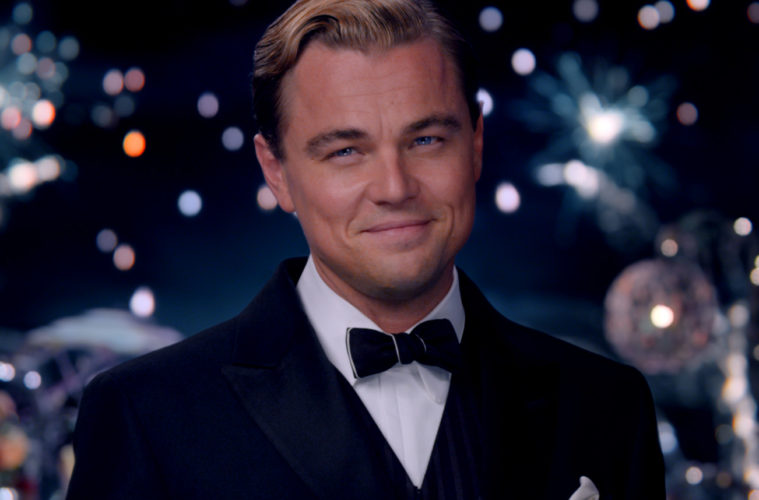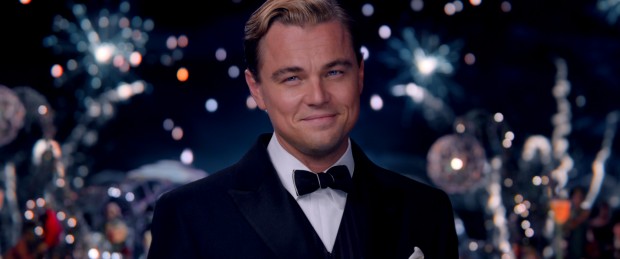
As we’ve learned this past spring with Oz the Great and Powerful, popping a certain adjective into your title will not create any sort of transference to the actually quality of the respective film. Many will likely come to the same conclusion with this weekend’s The Great Gatsby, but we’re here to provide you with the rare examples when a film actually lives up to a the “great” its title suggests. Across a variety of time periods, including one of the most influential silent films, and genres (from animation to concert documentary and everything in between) one can see the rundown of the greatest ten “greats” below and let us know your favorite one in the comments.
The Great Dictator (Charlie Chaplin; 1940)
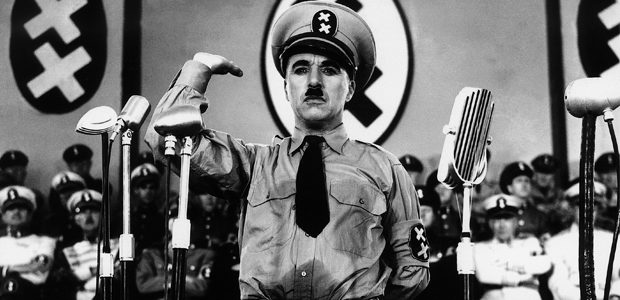
One of Charlie Chaplin‘s finest works, The Great Dictator truly lives up to its name. Mixing social commentary with his own impeccable brand of comedy, the entertainer proved once again his satirical bite was as perceptive and intelligent as anything in Hollywood. Featuring Chaplin as both dictator Adenoid Hynkel and his doppelganger, a lower class Jewish barber, the actor is able to bring out part of “The Tramp” persona that brought him to fame, as well as create a character as iconic as they come. Although it was banned in Spain, Italy and other various countries upon release, one can watch the entire film in full here. – Jordan R.
Great Expectations (David Lean; 1946 and Alfonso Cuarón; 1998)
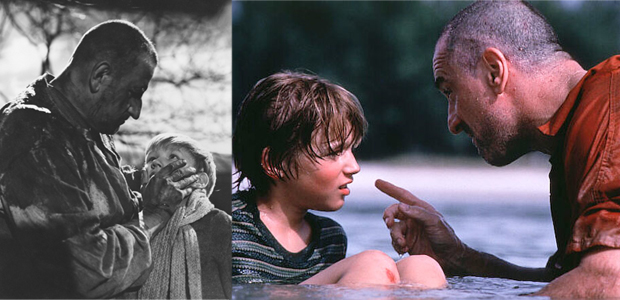
One sleek and slender in beautiful black and white, the other exciting and vibrant in luscious color, both Great Expectations – David Lean’s in 1946 and Alfonso Cuaron’s in 1998 – mindfully mill through Charles Dickens’ timeless novel of rags to riches, crafting two wonderfully separate-but-equal pieces of work. Where Lean’s adaptation focuses more on the social commentary rampant in the source material, Cuaron extracts the extreme romanticism that exists within all the character relationships. Between both films, the novel comes to life quite vividly. – Dan M.
The Great Escape (John Sturges; 1963)
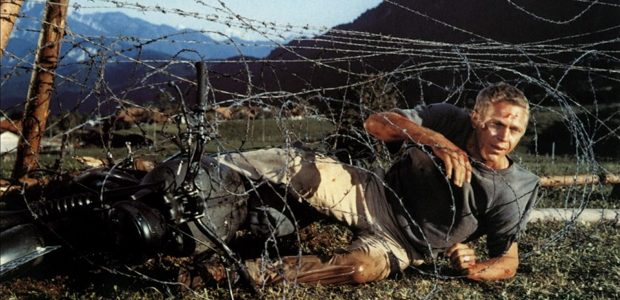
Perhaps the most fitting description of “great” on this list, the escape in this John Sturges is a nail-biter. In an attempt to break out 250 prisoners from a high-security German prison, we witness Steve McQueen, James Garner, Richard Attenborough, James Donald, Charles Bronson, Donald Pleasence, James Coburn and more hatch a plan to do so. At nearly three hours, it’s a long, detailed journey but one well worth taking if you’d like to experience the ideal example of a classic Hollywood adventure. – Jordan R.
The Great Love/Le Grand Amour (Pierre Étaix; 1969)
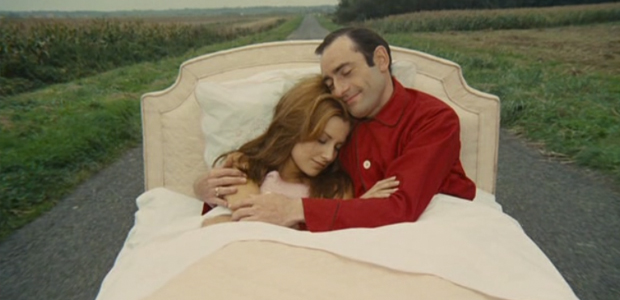
The “great” in Pierre Étaix’s Le Grand Amour is anything but—these two supposed lovebirds are prone to the same desires as everyone else. The “other” great comic Frenchman of the 1960s stars alongside his wife Annie Fratellini as a couple whose marriage that opens on a shaky start as the man imagines all the other women he could be marrying instead before exchanging vows. 15 years later, things seem to be on solid ground…until Étaix’s new secretary (Nicole Calfan) has him going bonkers. As surreal as Luis Bunuel and inventive as Buster Keaton (most notably for a dream sequence involving motorized beds), Étaix frames love as an evolving desire and one that always appears differently to its beholders. There is never a real common ground when it comes to this most passionate emotion. – Peter L.
The Great Mouse Detective (Ron Clements, Dave Michener, John Musker and Burny Mattinson; 1986)
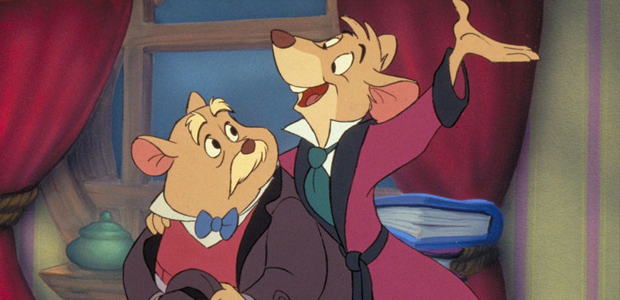
Does one really have to be told what makes this movie worthy of inclusion on this list? After all, of all the “mouse lives near and lives a parallel life to a famous figure” movies out there – and trust me, there are many – none is more rollicking fun than The Great Mouse Detective. Basil of Baker Street is a charismatic and intelligent protagonist, and his arch nemesis Rattigan is one of the most evil, vile, and detestable villains in all of Disney. The animation is beautiful, the story is just as twisty as one would hope for from a Sherlock Holmes homage, and the set piece set inside of Big Ben is a standout of action animation that still sets a benchmark. Plus there’s a peg-legged bat for comedic support – what’s not to love? – Brian R.
The Great Silence/Il grande silenzio (Sergio Corbucci; 1968)
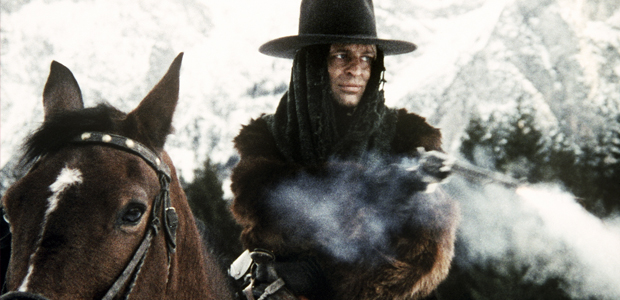
Heavily homaged in Django Unchained last year, this Sergio Corbucci classic western is a rough-edged, snow-covered tale of revenge. Featuring the great Klaus Kinski and Jean-Louis Trintignant, we track a the mute Silence who is out to kill those that harmed him as a child. Soaked in blood across the white Utah landscape, with the backing of a haunting Ennio Morricone score, this is a truly “great” must-see in the genre, and not just because of its unforgettable, uncompromising bleak ending. – Jordan R.
The Great Train Robbery (Edwin S. Porter; 1903)
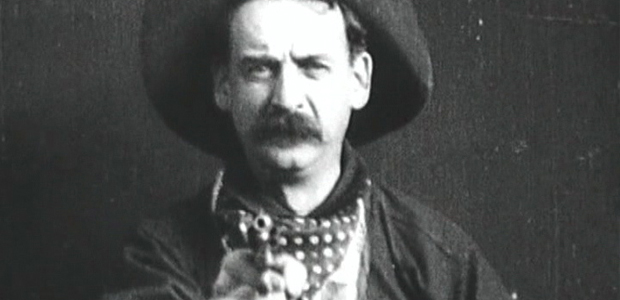
While Edwin S. Porter‘s breakthrough, 12-minute adventure was known for its innovative techniques including cross cutting, camera motion and moving away from the stage, it is its finale that had audiences terrified. A man points a gun directly at the camera and fires. People screamed and ran away at the sight and over a century later, filmmakers like Martin Scorsese and Quentin Tarantino are still paying homage to Porter’s landmark film. The first “great” film is truly one of the greats and one can watch it in full here. – Jordan R.
The White Stripes Under Great White Northern Lights (Emmett Malloy; 2009)
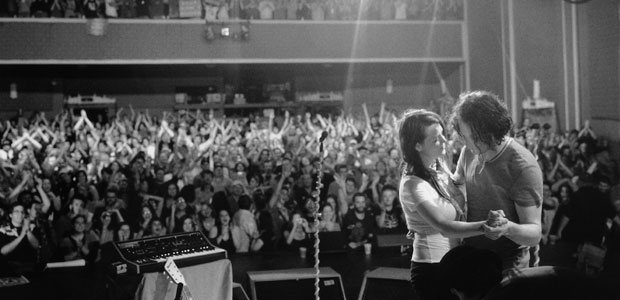
Taking into account their general taste for reclusiveness, Emmett Malloy‘s personal documentary tracking The White Stripes‘ 2007 tour was an eye-opening, stylish look at this rock ‘n’ roll duo. Aiming to play a concert in all ten Canadian provinces, the filmmaker captured everything from intimate “secret shows” to huge concerts on gorgeous landscapes, all while getting a rare, inside look at the musical talents. Little did we know that there would be only a few more years to go for the band, but we can consider this an ideal, “great” parting gift. – Jordan R.
World’s Greatest Dad (Bobcat Goldthwait; 2009)
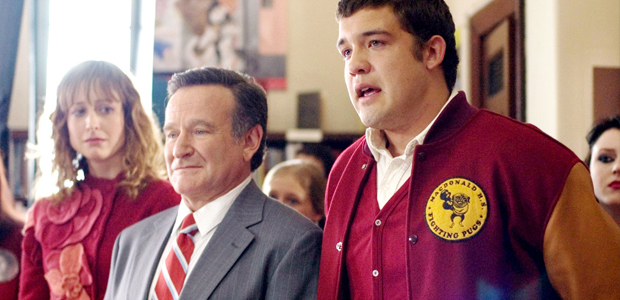
The title of this movie is definitely meant in jest with regards to Robin Williams’ title character, and yet there is some truth in the application of the moniker to him. After all, the fact that he hadn’t murder his detestable son long ago goes a ways towards proving his love and tolerance, and the fact that he attempts to give his son a less ignominious death than the autoerotic asphyxiation that really claimed him is darkly admirable. However, riding the death of his son and using it as a platform to bolster his own flagging writing career… well that’s a bit less excusable, though it does lend this black comedy a dark well of material to draw from, which writer/director Bobcat Goldthwait does with aplomb. Not for the sensitive, but if your sense of humor is just as deranged and demented as this film’s, you won’t be able to stop laughing. – Brian R.
What are you favorite ‘great’ movies?

